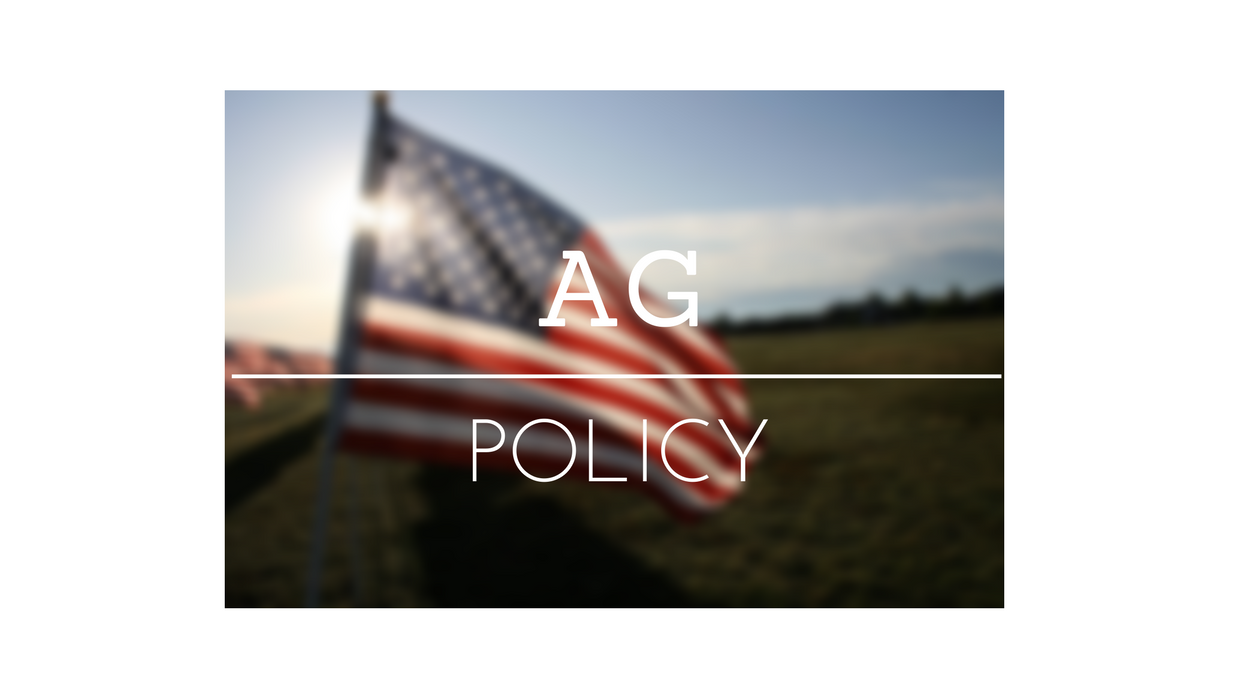As Congress eyes an extended break, several items of interest to agricultural interests have surfaced in recent weeks.
Congress is looking to approve a $1.2 trillion bipartisan infrastructure package with $110 billion for roads, bridges and related projects; $66 billion for passenger and freight rail; $54 billion to rebuild the electric grid; $65 billion to expand broadband internet access; and $39 billion to modernize and expand transit systems. It still has to win approval in the House. It also includes $55 billion for water infrastructure, which earmarks $15 billion for replacing lead pipes.
If the Senate plan is approved and signed into law by President Joe Biden as written it adds $256 billion to the projected deficit, according to the Congressional Budget Office.
One of the bipartisan senators who helped initiate the negotiations ultimately has withdrawn his support. Jerry Moran, R-KS, said he will oppose the Infrastructure Investment and Jobs Act.
“From the beginning, I outlined the criteria needed for me to support any final outcome of the negotiations. My top priority was the bill must be paid for and, therefore, not raise the national debt. However, the new spending in the final bill adds a quarter of a trillion dollars to the national debt.”
Petition on checkoff deadline extended
Secretary of Agriculture Tom Vilsack announced he will grant a three-month extension to allow cattle producers to vote on the Beef Checkoff Program petition until Oct. 3.
On Aug. 3, the USDA granted a 60-day extension to gather signatures given the extenuating circumstance of the COVID-19 pandemic and associated challenges. The petitioners seeking a referendum on the Beef Checkoff Program now have 15 months instead of 12 months to gather signatures. The petitioners must notify the Agricultural Marketing Service when the time period begins and ends. In this case, the petition process runs from July 2, 2020, to Oct. 3, 2021. The petitioners have 30 days to submit the names of producers either via mail or electronic means after the 15-month period concludes.
The original end-date of the petition was July 2.
Biofuels absence noted
U.S. Rep. Cindy Axne, D-IA, said a lack of biofuels in bipartisan infrastructure is troubling as she waits for the bill to shift to the House.
“While I commend the White House and senators for continuing to work toward creating bipartisan infrastructure legislation that can tackle issues ranging from aging bridges and roads to expanding access to high-speed internet, it’s unacceptable to see that this agreement still does not include investments in a bipartisan, homegrown clean energy source: biofuels.”
Farm state senators have sent a letter to Biden requesting a meeting to discuss the Renewable Fuel Standard and promote biofuels as a key solution for America’s energy and climate agenda.
“We seek an audience to discuss the tremendous opportunity that biofuels like ethanol and biodiesel present to bolster affordable American energy, underpin a strong agricultural economy, and immediately lower transportation emissions using the existing consumer vehicle fleet and fueling infrastructure,” wrote the senators. “Unfortunately, the promise of homegrown biofuels and our agriculture sector appear to be woefully underrepresented in your administration’s energy, environmental, and transportation agenda.”
The letter was signed by Sens. Moran, Roger Marshall, R-KS; John Thune,R-SD; Chuck Grassley, R-IA; Roy Blunt, R-MO; Deb Fischer, R-NE; Mike Rounds, R-SD; Joni Ernst, R-IA; and Ben Sasse, R-NE, also signed the letter.
USDA to add more livestock reports
The U.S. Department of Agriculture announced the creation of two new USDA Market News reports based on Livestock Mandatory Reporting data that will provide additional insight into formula cattle trades and help promote fair and competitive markets.
“I’ve had several conversations with the USDA asking for more meaningful information within the formula reporting bucket so Kansas cattle producers can make informed business decisions,” Marshall said. “I applaud USDA for making this information available to the public and will continue to work with department leadership to help make markets more transparent.”
The National Daily Direct Formula Base Cattle reports will enable stakeholders to see the correlation between the negotiated trade and reported formula base prices, as well as the aggregated values being paid as premiums and discounts. Daily formula base price reports will be national in scope and released in morning, summary and afternoon versions. The weekly and monthly formula-based reports will be both national and regional in scope and include forward contract base purchase information.
The National Weekly Cattle Net Price Distribution report will show at what levels (price and volume) trade occurred across the weekly weighted average price for each purchase type—negotiated, negotiated grid, formula and forward contract. Publishing a price distribution for all cattle net prices may offer more transparency to each of the purchase type categories. This report is a window into what producers are paid for cattle (net) and retains confidentiality by segregating volumes purchased in $2 increments plus or minus the daily weighted average price depending upon premiums and discounts. AMS has published a similar net price distribution report for direct hogs since January 2010.
Lesser prairie-chicken comment period extended
The U.S. Fish and Wildlife Service is extending the deadline for public comment on the proposal to list two distinct population segments of the lesser prairie-chicken under the Endangered Species Act. The extension notice will extend the public comment period by 30 days. The new deadline for public comment on this proposal is Sept. 1.
U.S. Rep. Tracey Mann, R-KS, a member of the House Agriculture Committee, applauded the decision.
“While the 30-day extension is not as long as the time requested, this extension will at least give the public more time to voice their opinions on the matter. During their announcement last month, FWS commended the voluntary efforts in Kansas, including 40,000 acres of habitat conservation, but ultimately decided that the federal government is better equipped to address these local areas. This is yet another federal overreach that will disrupt industries that are vital to our economy. I will remain vigilant as the rulemaking process begins and want to ensure all Kansas stakeholders are heard and not negatively impacted by any federal designation.”
FWS has sent a proposed rule to the Federal Registrar for public comment. Public comments are open at www.regulations.gov under docket number FWS–R2–ES–2021–0015. By hard copy submit by U.S. mail to: Public Comments Processing, Attn: FWS-R2-ES-2021-0015, U.S. Fish and Wildlife Service, MS: PRB/3W, 5275 Leesburg Pike, Falls Church, VA 22041-3803.
NRCS under secretary nominated
Sen. John Boozman, R-AR, Ranking Member of the U.S. Senate Committee on Agriculture, Nutrition and Forestry, released a statement on the nomination of Homer L. Wilkes to be under secretary for natural resources and environment at the U.S. Department of Agriculture. Here are a couple of excerpts.
“Our nation’s forests and grasslands serve a variety of functions—habitat for wildlife, areas for outdoor recreation, grazing for our livestock, energy and mineral development and timber for a vibrant wood products industry, which by the way, sequesters carbon in wood products long beyond the natural life of the individual tree.”
“However, the success of keeping our forests healthy and working—with carbon sequestration, wood products, recreation, wildlife and resources—is only as strong as our forest management.”
Dave Bergmeier can be reached at 620-227-1822 or [email protected].




